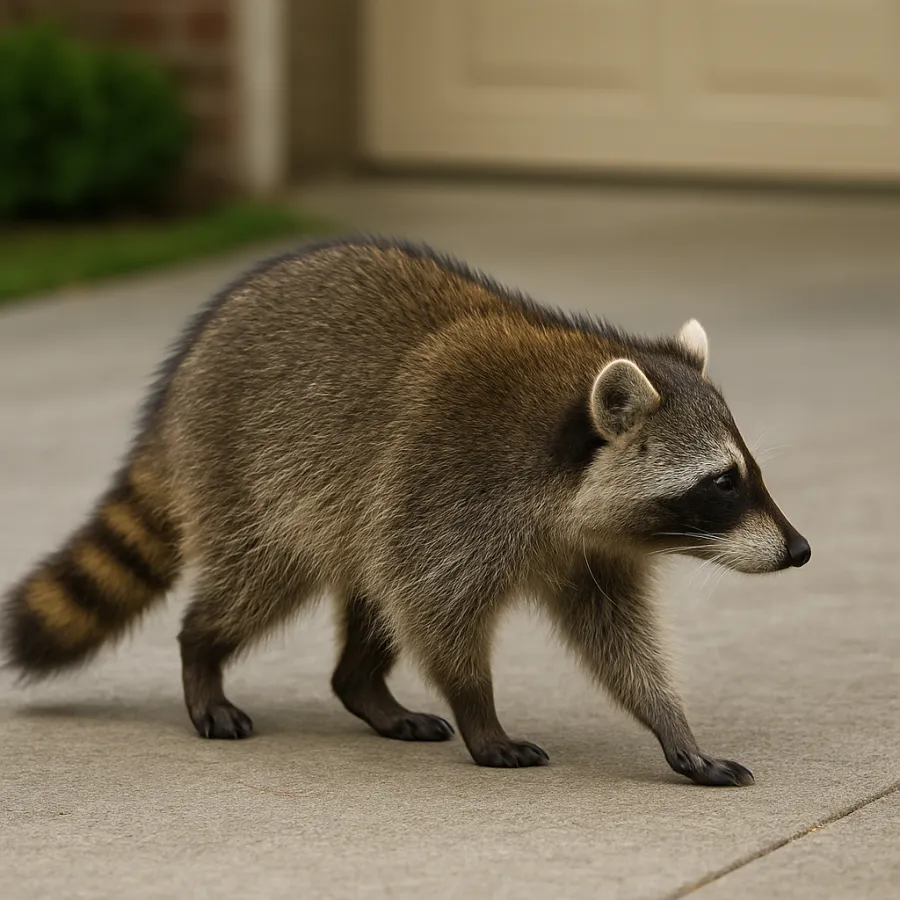Raccoon Removal & Control Services
Raccoons may appear curious or harmless, but when they enter your home, attic, or crawl space, they can cause serious property damage and health risks. Cingo Home provides professional raccoon removal and exclusion services to protect your home and prevent future infestations.
About Raccoons
Raccoons are medium-to-large mammals commonly found throughout wooded areas, suburbs, and urban environments. They are primarily nocturnal, meaning most activity occurs at night, though they may occasionally be seen during daylight hours.
Highly intelligent and adaptable, raccoons are excellent climbers and problem solvers. They often use trees, fences, rooflines, and utility structures to access homes. Once raccoons find an opening, attics and crawl spaces provide warmth, shelter, and safety—making them attractive nesting locations.
Although raccoons play an important role in the natural ecosystem, they become a serious problem when they enter homes to nest or raise young, especially in attics, chimneys, and crawl spaces.
If you're hearing heavy thumping, walking, or scratching noises at night, or noticing damage near your roofline, you may have a raccoon problem that requires professional wildlife control.

Damage Caused by Raccoons
Raccoons are one of the most destructive wildlife pests when they gain access to a home. Their size, strength, and dexterity allow them to cause extensive damage in a short period of time. Common raccoon damage includes:
Torn or compressed attic insulation
Chewed or damaged electrical wiring (fire hazard)
Damage to wood framing, ducts, vents, and plumbing
Broken soffits, roof shingles, and attic entry points
Contaminated attic or crawl space areas from urine and feces
Signs of a Raccoon Infestation
Homeowners often notice the following signs of raccoon activity. If left untreated, raccoon infestations can worsen quickly—especially during breeding season when mothers are raising young. Common signs include:
- Loud thumping, walking, or scratching noises at night
- Damage to roof edges, soffits, vents, or attic access points
- Overturned trash cans or scattered garbage
- Strong odors from attic or crawl space areas
- Visible droppings or nesting materials
Professional Raccoon Removal Services
Cingo Home specializes in safe raccoon removal using proven wildlife control methods. Because raccoons are highly intelligent and often return to the same nesting areas, effective removal requires more than simply removing the animals. Our raccoon control process includes:
Thorough home, roof, and attic inspection
Identification of entry points, nests, and damage
Humane raccoon removal following local regulations
Professional exclusion and sealing services
Recommendations for long-term prevention and repairs
Schedule Professional Racoon Removal Today
If you're hearing heavy thumping or scratching noises at night or noticing damage around your roof or attic, don't wait. Raccoons can cause serious structural damage and health risks if left untreated.
Contact Cingo Home today to schedule an inspection and get expert squirrel control you can trust.
Call 855-919-9090 or click below to contact us.

